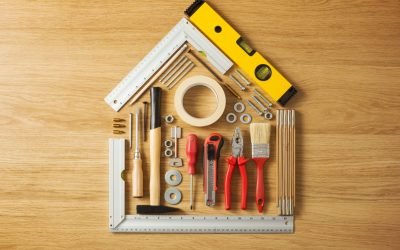Just as you’re relishing the freedom of your rental, you might overlook the subtle cues that your home needs some TLC. Think you can ignore those small maintenance tasks without consequences? You’re in for a surprise.
As a savvy renter, you know that preserving your living space is key to keeping your independence. Regular upkeep not only ensures a safe and comfortable home but also prevents more costly repairs down the road.
Dive into the essentials of rental maintenance, from safety checks and HVAC care to plumbing and electrical efficiency. By staying on top of these routines, you’ll enjoy uninterrupted comfort in your personal haven.
Remember, a little attention to your rental’s needs today can secure your carefree lifestyle for all your tomorrows.
Key Takeaways
- Regular maintenance and inspections are crucial for property management and can prevent costly repairs.
- Proactively addressing issues like leaky faucets and aging appliances is essential to ensure the property remains in top condition and safeguards tenants’ comfort.
- Regular inspections help identify potential problems before they escalate, saving money in the long run and preventing emergency repairs.
- Prioritizing electrical maintenance and safety checks is necessary to ensure tenant safety, prevent fires or electrical shocks, and reduce utility costs.
Understanding Regular Maintenance
While you may see rental maintenance as an optional task, it’s actually a crucial component of property management that can prevent costly repairs down the line.
Regular maintenance ensures that your property remains in top condition, safeguarding your investment and your tenants’ comfort. You’ve got to keep a keen eye on wear and tear, proactively addressing issues like leaky faucets, aging appliances, and weatherproofing vulnerabilities.
It’s not just fixing what’s broken; it’s about maintaining what works to avoid future breakdowns. By scheduling routine inspections, you can identify potential problems before they escalate.
This level of diligence not only saves you money in the long run but also secures your freedom from emergency repairs and tenant dissatisfaction. Stay ahead, stay informed, and keep your property’s performance optimal.
Essential Safety Checks
You must regularly test your property’s fire alarms and carbon monoxide detectors to ensure they’re in working order; tenants’ lives could depend on it.
An annual inspection of the electrical system by a qualified electrician can prevent hazardous malfunctions.
Ignoring these safety checks isn’t just irresponsible; it’s a legal liability that you can’t afford to overlook.
Fire Alarm Functionality
Every rental property must have fully operational fire alarms to ensure the safety of its occupants. It’s not just a legal mandate; it’s a fundamental responsibility you hold as a landlord. Here’s what you need to check regularly:
- Test Alarms Monthly: Press the test button to confirm each alarm is responsive.
- Replace Batteries Annually: Even if they seem to work, swap out old batteries for new ones.
- Inspect for Damage: Look for any signs of tampering, dirt accumulation, or physical damage that could impair functionality.
- Professional Maintenance: Have a certified technician inspect and service the alarms periodically to ensure they meet current safety standards.
Don’t gamble with your tenants’ safety. Upkeep of fire alarm systems is a non-negotiable duty that secures their well-being and your peace of mind.
Carbon Monoxide Detectors
Regarding carbon monoxide detectors, don’t overlook the critical safety checks they require to protect your tenants effectively. As a vigilant property owner, you’re responsible for ensuring these devices are in top working order.
Make it a routine to test each detector monthly, replace batteries annually, and renew the units according to the manufacturer’s guidelines—usually every five to seven years. Remember, carbon monoxide is a silent killer; it’s odorless and colorless, making these detectors your tenants’ first line of defense.
Documentation of maintenance and testing should be meticulous. Keep a log for each unit to ensure compliance and peace of mind. These records not only demonstrate due diligence but also establish a culture of safety within your properties.
Turning our attention next to the electrical system inspection, ensure that…
Electrical System Inspection
Just as your property’s carbon monoxide detectors are crucial, the electrical system requires regular inspections to prevent potential hazards. It’s your responsibility to ensure the safety and integrity of your rental’s electrical system. Here’s what you can’t afford to overlook:
- Test power Outlets: Guarantee they’re functioning correctly to prevent shocks.
- Inspect Wiring: Look for any signs of fraying or aging wires that could cause fires.
- Check Circuit Breakers: Ensure they aren’t overloaded and are in good working order.
- Verify Light Fixtures: Confirm that all fixtures are securely installed and no wires are exposed.
Maintaining your electrical system is non-negotiable for the safety of your tenants.
Now, let’s switch gears and talk about another critical aspect: HVAC system upkeep.
HVAC System Upkeep
In the UK, HVAC maintenance for rental properties is not as common as in other countries. However, it is important not to ignore it, as it is necessary for the comfort of tenants and the efficiency of the system.
Ensure you’re replacing filters regularly to prevent airflow restrictions and maintain indoor air quality.
Additionally, scheduling seasonal inspections can head off costly breakdowns and extend the life of your HVAC unit.
Regular Filter Replacement
While you mightn’t see it, regularly replacing the HVAC filters in your rental property is crucial to maintaining a healthy living environment and efficient energy use. Here’s what you need to know:
- Improved Air Quality: Fresh filters trap contaminants and allergens more effectively, ensuring cleaner air for your tenants.
- Enhanced Efficiency: Clogged filters force HVAC systems to work harder, leading to higher energy bills. Regular replacement keeps costs down.
- Preventive Maintenance: Consistent filter changes reduce wear and tear on your HVAC system, preventing costly repairs.
- Compliance with Lease: Your lease may require regular maintenance. Upholding your end of the deal preserves tenant relations and can prevent legal issues.
Stay on top of filter replacements to safeguard both your property and your tenants’ comfort.
Seasonal Inspection Importance
Because you’re already replacing filters regularly, don’t overlook the need for seasonal HVAC inspections to guarantee your system’s optimal performance year-round.
These examinations are vital to ensure your unit isn’t just working, but working efficiently, which means savings on energy bills and avoiding costly breakdowns.
An expert technician will scrutinize your HVAC system before peak seasons, tuning it up for summer heat or winter cold. They’ll check refrigerant levels, inspect electrical connections, and verify the thermostat’s accuracy.
This isn’t just about comfort; it’s about preempting emergencies and prolonging the life of your investment.
Commit to a maintenance schedule; it’s a small step towards ensuring your freedom from unexpected repairs and the financial burdens they bring.
Plumbing Care Essentials
A landlord’s proactive approach to plumbing maintenance can prevent costly repairs and ensure tenant satisfaction. You can’t afford to let plumbing issues spiral out of control, as they’re not just inconveniences but potential hazards. Keep your properties in top shape with these essentials:
- Regular Inspections: Schedule bi-annual checks to catch leaks, corrosion, or blockages before they become disasters.
- Quick Response: When tenants report issues, act promptly. Delays can lead to extensive water damage.
- Quality Materials: Invest in reliable fixtures and pipes. Cheaper options might save money now but can lead to frequent breakdowns.
- Professional Help: Don’t skimp on expertise. Certified plumbers can spot problems you might miss and provide solutions that last.
You’ll protect your investment, keep your tenants happy, and uphold your reputation as a responsible landlord.
Electrical Safety and Efficiency
Your rental’s electrical system requires just as much attention as plumbing, with routine checks and upgrades essential for preventing hazards and optimizing energy efficiency.
Don’t underestimate the importance of regular inspections; they’re your first line of defense against potential fires or electrical shocks. Ensure that your circuit breakers are functioning properly and aren’t outdated—they’re pivotal in preventing overloads.
You’ll also want to look into LED lighting and energy-efficient appliances. These upgrades can significantly reduce the electricity bills and increase your property’s appeal.
Moreover, don’t overlook the wiring; frayed wires or those not up to code aren’t just dangerous—they’re liabilities. By prioritizing electrical maintenance, you’re not only safeguarding your tenants but also promoting a sense of freedom from worry about their safety and utility costs.
Appliance Servicing Routines
In addition to electrical upkeep, you’re responsible for ensuring that all appliances receive regular servicing to maintain their performance and longevity. Here’s a practical approach to keep your appliances in top shape:
- Refrigerators: Clean coils every six months to improve efficiency.
- HVAC Systems: Replace filters quarterly to prevent airflow blockage and system strain.
- Dishwashers: Inspect and clean the spinning arms and gaskets annually to prevent leaks and ensure proper function.
- Dryers: Clear the lint filter after each use and check the vent pipe biannually to reduce fire hazards.
Exterior and Structural Care
Shifting focus to the property’s exterior and structural integrity, you’ll find that regular inspections can prevent costly damage and ensure tenant safety. Don’t overlook the significance of a well-maintained facade and solid foundation.
Examine the roof for missing shingles, potential leaks, and gutter blockage. Address these issues promptly to avoid water intrusion that can lead to structural decay.
Survey the siding or brickwork for cracks or deterioration. It’s not just about aesthetics; it’s a barrier against weather and pests. Ensure windows and doors seal tightly, maintaining energy efficiency and security.
Regularly check the property’s foundation for fissures that could escalate into major repairs. Ignoring these critical areas risks not only your investment but also your tenants’ well-being and your reputation as a responsible landlord.
Frequently Asked Questions
How Can Neglecting Rental Maintenance Impact My Insurance Premiums or Coverage?
Neglecting maintenance on your rental can lead to increased insurance premiums and may result in coverage denials for claims related to the deferred upkeep. Stay proactive to keep your costs down and freedom intact.
Are Landlords Legally Responsible for Any Injuries Caused by Neglected Maintenance Issues?
Yes, as a landlord, you’re legally accountable for injuries stemming from ignored maintenance. Prioritize safety, uphold tenant rights, and protect your freedom from legal woes by addressing repair issues promptly and thoroughly.
How Does Rental Maintenance Negligence Affect the Property Value and Long-Term Investment Potential?
Neglecting rental maintenance can significantly reduce your property’s value and compromise your investment potential. Stay proactive to ensure freedom from costly repairs and maintain your asset’s long-term growth.
What Are Some Effective Strategies for Dealing With Tenants Who Consistently Cause Damage or Avoid Reporting Maintenance Issues?
You’re facing tenants damaging property. Strategize with clear lease terms, regular inspections, and swift penalties. Uphold your investment’s integrity; ensure tenants know their responsibilities. Freedom for you means holding them accountable. Act decisively.
Can Neglecting Rental Maintenance Lead to Issues With the Local Housing Authority or Other Regulatory Bodies?
Yes, you’ll face serious trouble with housing authorities if you ignore maintenance. They can impose fines or restrictions, limiting your freedom to manage your property. Always address repairs promptly to avoid these issues.
- Rent-to-Rent Schemes: Hidden Dangers Lurk - July 6, 2024
- How to Sell Your House Fast in Kent - July 5, 2024
- 7 Tips to Sell Your House Fast - July 4, 2024


